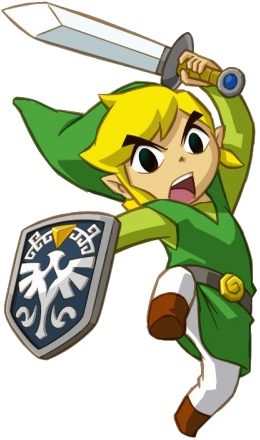It may not be something that we all think about often, but looking back over some of gaming’s notable heroes, there have been those whom have been very vocal about their ambitions and those who’ve played it quietly and cool. How does that affect our perceptions of those characters, what impact does it have on the way we perceive the games we play and is one better than the other? Well, looking at both in one go is going to be a bit tiring, so let’s do one for the time being: The Silent Protagonist.
For the uninitiated, a silent protagonist is the main character of a game who has no dialog during the game (screams and random sound effects don’t count as dialog) and mostly gets by on the dialog of any allies, enemies, or the decisions the player makes during the game. There are various kinds of silent protagonists – Those who aren’t shown to be capable of speech, those who are capable of speech (but do not speak during the game’s story) and those who are capable of speech, but do not have their dialogue listed in the game and the player assumes the character spoke on their own behalf.
Let’s look at a few ways the silent protagonist is advantageous as a design choice and how they may affect us players. For one thing, there’s the way that we the players identify with the characters in question, they become an extension of ourselves. Silent protagonists normally give us the freedom to do what we will (often being placed in a world that may be explored freely with few restrictions except plot-related ones) and allow us to play these characters as if we were them.

This does three things for us the players. The first thing is the development of the rest of the cast of characters; because they end up doing most of the plot progression and dialogue we learn more about their ambitions, personality and beliefs without having to worry about the protagonist getting in the way, thus adding some more depth and character development. The second thing is most silent protagonists are blank slates–regardless of their past deeds–that allow us to immerse ourselves more in the world by placing ourselves in the protagonist’s shoes and attribute our own beliefs and values to them as well as make decisions. The third thing it allows is for us to get involved more in the plot, as if it’s personally affecting us more than it would if we were playing most of the vocal protagonists out there (there are exceptions of course).
To apply this to an actual title let us take a look the Golden Sun series and its protagonists: Isaac, Felix and Matthew. In Golden Sun the protagonists are mostly silent in the games they star in and are vocal when they are not starring. When the silent protagonists, the closest Isaac , Felix and Matthew get to speaking is when there is a Yes or No option placed before the player; otherwise they say nothing and their travelling companions do the talking.
The lack of Isaac/Felix/Matthew talking in their respective titles allowed us to learn more about the rest of the party and other major characters in the game. The extra dialogue allows us to catch glimpses of personality, quirks, behavior (Ivan’s witty personality and growth of confidence; Jenna’s fiery attitude, competitive nature and her crush on Isaac; Mia’s generous nature and the effects Alex has on her psyche) that we may not even be exposed to if the protagonist had any dialogue. Not only that, but being surrounded by developed characters instead of being on the outside-looking-in certainly adds to the immersion factor.
Let’s also take a look at this whole psycho-mo-logical extension of self thing while we’re looking at silent protagonists. Because silent protagonists help us get more involved in the game from the character’s perspective, we may take that opportunity to act like a more noble person than we normally would be, act the same we normally do, or take the chance to cut loose and be a complete assh0le. For example you could play through Golden Sun once and Isaac/Felix/Matthew becomes this noble hero that never turns a deaf ear to a pleading soul, does every side-quest and ties up every single loose end throughout Weyard. The second time, however, you could play Isaac in such a way that he is a heartless person who only cares about his quest. Nothing but your actions determine that. It is not a stretch to say they get us to learn a bit more about ourselves as well.
While your Yes/No decisions don’t adversely affect the plot, the way you choose to complete your quest (including doing side-quests) affects how others think of your character in later stages of the game or the sequel. The benefit to the silent protagonist is that it places you in the story, that you’re actually feeling the feelings and living the story as it unfolds. When major plot twists occur–I won’t give away any goodies–and betrayals happen, you may not help but be taken aback as if they happened to you personally (because they like they did).
Now, Golden Sun isn’t the only series to feature silent protagonists, but it makes for a good example; other series have used silent protagonists to very different–yet similarly successful–results. Other notable series that featured silent protagonists include The Legend of Zelda’s Link, Half-Life‘s Gordon Freeman, Chrono Trigger‘s Crono and the Portal series’ Chell. Link is silent because it places the character in the larger-than-life and allows you to explore and interact with Hyrule in any way you choose. The reason behind Freeman’s portrayal as a silent protagonist is likely to give players that sense of horror and dread, being placed in the shoes of an ordinary scientist with a crowbar who must fight back hordes of alien creatures to assure his relative safety and eventually the safety of the planet.
In Chell’s case in Portal & Portal 2, Valve Writer Erik Wolpaw explains that Chell was created as a silent protagonist because it was “funnier.” Wolpaw said “There’s this thing with comedy, there’s sort of two different patterns. One is, you’re the straight man in a world gone mad, and the other one is you’re a crazy person in a sort of straight world. Portal is definitely the world gone mad straight man, and the straight man is you…You may want to know Chell’s backstory, you may want to hear her say things, but I guarantee, if she had to say her straight man lines at the expense of half of the other dialogue, it would suck.”
Well, that’s enough of the deep talk for today, after all most of you probably don’t want to put too much thought into your games and take the fun out of things. As video games take the first major steps into becoming a recognized and respected artistic medium, however, it doesn’t hurt to start looking at all the things that make them experiences to remember (for better or worse). Next time we’ll look into what makes the vocal protagonist a viable design choice.



